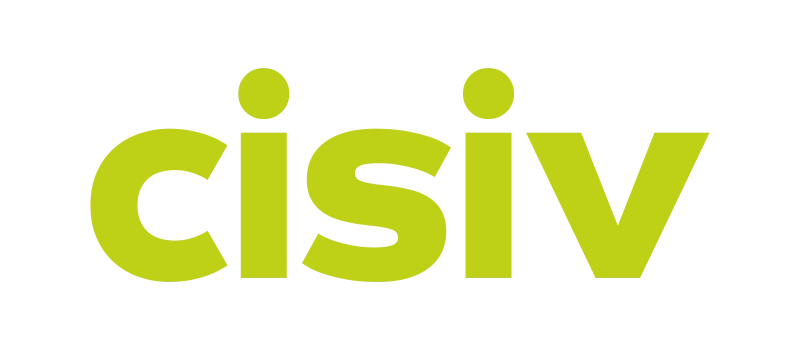Cisiv partnered with a specialist CRO and a Medical Device Company (IVD Sponsor) to conduct an end-to-end process for clinical evaluation of an In Vitro Diagnostic (IVD) classed as a Rapid Diagnostic Test (RDT). This enabled the IVD Sponsor to obtain Emergency Use Authorisation (EUA) during the COVID-19 pandemic in an exceptionally short time frame.
Background
At the start of 2020, due to the COVID-19 outbreak, the United States Secretary of Health and Human Services declared a public health emergency. Under these circumstances, the US Food and Drug Administration (FDA) gained the power to grant EUA for several classes of medical devices, which could be used in the fight against the COVID-19 outbreak. These included IVD for the detection and/or diagnosis of COVID-19 (February 4, 2020), personal respiratory protective devices (March 2, 2020), and other medical devices, including alternative products used as medical devices (March 24, 2020)
Many countries outside of the United States also reported similar political will and legal frameworks to accelerate quality-assured diagnostic tools and treatments against COVID-19. The European Medicine Agency and the UK Medicines and Healthcare Products Regulatory Agency (UK MHRA) took similar steps, granting conditional marketing authorisation for both diagnostic devices and treatments, to support the fight against the COVID-19 pandemic.
Why were these policies put in place?
Diagnostic tests are typically in development for 2–5 years, then take another 5–10 years to undergo evaluations, regulatory approval, and policy and guideline development before procurement, training, and deployment can be initiated. These timelines are far too long in the event of an outbreak, epidemic, or pandemic. The COVID-19 pandemic raised awareness and mobilised political will to accelerate this pathway, and create a new framework for epidemic preparedness.
The Trifecta: the triple challenge of accelerating clinical validation
In normal circumstances, under a full regulatory review, clinical performance studies must be completed in settings of intended use, performed by intended users, within a fixed period, such as 180 days for some national regulatory authorities. Under EUA, independent laboratory evaluations can fulfil requirements, and the review of data will be completed in an accelerated time frame. However, many other considerations such as Good Manufacturing Practice (GMP) compliance, having a functional QMS, and providing full validation and verification of the device are still required. The need to perform at pace, along with the demand outstripping the supply, adds to the already burdensome budgets.
All three parameters of the project management triangle were under pressure: time, quality and costs.
Solution
A collaborative approach to perform a clinical validation of an IVD test at pace
Cisiv partnered with a large CRO and the IVD Sponsor (medical technology manufacturer) to support the clinical validation of their rapid diagnostic test. The manufacturer of the COVID-19 rapid diagnostic tests needed to perform a full clinical evaluation of their IVDs, compliant with FDA and World Health Organisation (WHO) requirements.
Rapid diagnostic tests have vast potential to monitor disease progression, optimise patient care/treatment and improve patient outcomes, by identifying infections and their causes early, therefore enabling physicians to offer the most appropriate treatment.
Engagement and participation were also key factors within the design of the study itself; requiring a single, easy-to-use, logical platform that would reduce the need for paper form completion, ensuring data quality and completeness at the point of entry, and reducing the data management burden.
What made Cisiv’s solution unique?
Cisiv’s expertise in delivering real world studies, underpinned by the flexibility and ease of use of its technology platform, Baseline Plus, ensured that workflows and processes could be streamlined in order to meet the deadlines of this clinical validation project.
Cisiv collaborated with the CRO and the IVD Sponsor to design and implement the data collection process. Baseline Plus is designed for the real world environment, with a user interface that is specifically developed for people who mainly perform clinical work, as opposed to clinical trials, on a daily basis. The series of workflows and in-built logic supports simple and efficient data collection where data quality is embedded at the point of entry.
Baseline Plus leverages process automation and intelligent algorithms to reduce the need for expensive and inefficient manual data checking. Close collaboration ensured the project was delivered at pace, whilst achieving the core aims of the clinical validation. In this clinical validation study, results from both the antigen test and RT-PCR tests were entered directly into the Baseline Plus system at the point of testing.
This particular clinical evaluation included the following data capture:
- Standard patient demographics, history, inclusion/exclusion.
- Time taken to perform the test and relevant resource utilisation.
- The results of both tests.
- Test accuracy (when under observation).
The data output was GCP compliant and enabled the comparison of the antigen test with the current gold standard, as well as including statistical analysis for sensitivity and specificity.
Outcome
As a result of the close collaboration between Cisiv, the CRO and the IVD Sponsor, the results were submitted to the regulatory authority and the company received regulatory clearance for its relevant market. The IVD Sponsor was impressed with the speed and quality of the process.
Cisiv successfully developed a standardised approach for the delivery of clinical validation studies for in vitro diagnostics, point-of-care diagnostics, molecular diagnostics, and genetic and genotyping testing.


